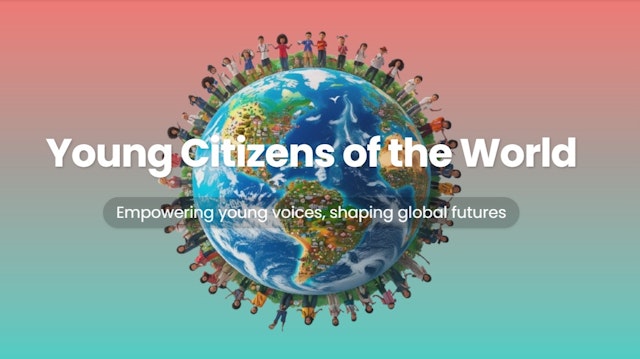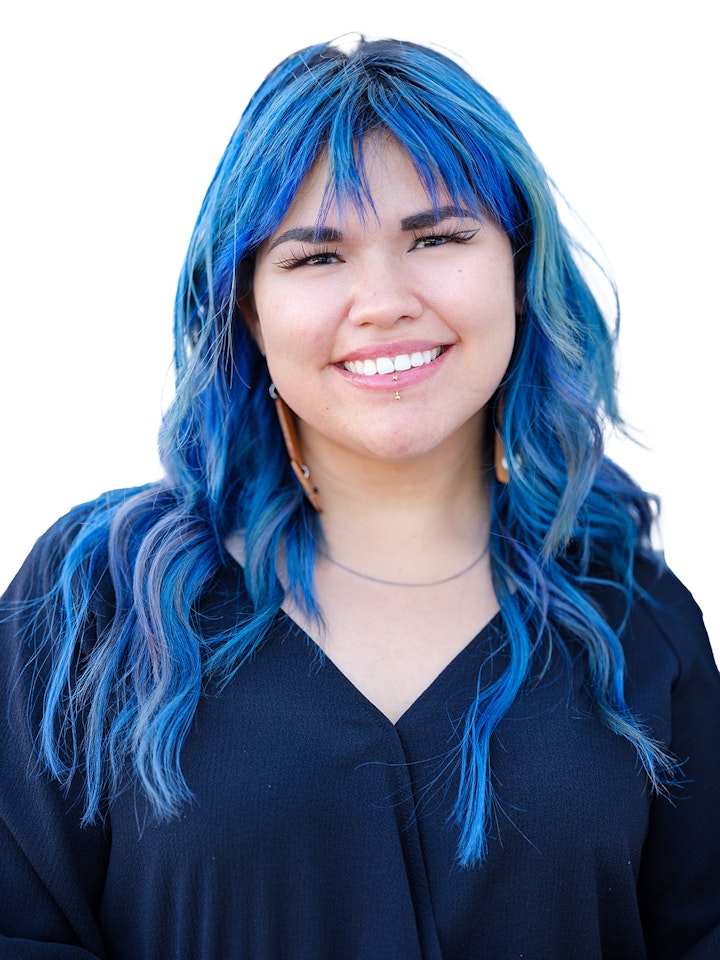Two wonderful articles written about our newest board member whom we were so proud to meet when YGC was JUST getting started in the very early days of the 2020 Pandemic Lockdown.
(Just scroll down on our website's main page to see the original interview!)
To tell the story of climate change for Inuit, Ashley Cummings uses the example of moss on a rock in Nunavut in the springtime. The moss is ripped off the rock, either by a person or increasing heat.
“Inuit are that moss, delicately clinging to that rock,” said Cummings, a 23-year-old Yukon University student.
Cummings said she is frustrated. Whether it is melting permafrost breaking bridges in her hometown of Pangnirtung or fellow Inuit not being able to use trails across melting ice in the spring, Cummings said her people’s voices are not being heard on climate change.
That frustration is why Cummings will be speaking at the second annual Climate Justice World Forum between Sept. 21-23, to be held in Glasgow, Scotland, though people will participants attend it as a virtual event. The event will be dedicated to exploring ideas to address climate change in a way that is sustainable to those who are the most affected by the phenomenon.
Cummings said she will be there to speak about Inuit perspectives on climate change and help address the lack of Inuit voices in the global conversation on how to address the warming planet.
“Climate change has impacted our culture and the way we live our lives,” Cummings said in an interview.
Other speakers include well-known global figures such as World Health Organization director-general Tedros Adhanom Ghebreyesus and former executive director of Greenpeace International Kumi Naidoo.
International conferences tend to focus on climate change mostly through a scientific lens, Cummings said, and that needs to change.
“The North is such an ignored part of climate change, other than the ice or the icecaps,” Cummings said.
“What about the people?”
While science is useful for addressing climate change, Cummings said Inuit Qauijimajatuqangit, or traditional Inuit knowledge, is not often considered. Through IQ principles and other practices that encourage being on the land, Inuit have built generations of knowledge on how the planet works, Cummings said.
“It’s not technically scientific or peer-reviewed but it’s still just as valid,” Cummings said.
In previous conferences Cummings has spoken, she said that she felt like the token Inuk invited because she only had a small role in panels.
At the Climate Justice World Forum, Cummings said she expects that to change, as she will be one of the featured speakers at the event.
Cummings grew up in Pangnirtung and moved to Nova Scotia at the age of 12. Her desire to fight for Inuit causes began when she realized how uncommon child suicide was in Nova Scotia compared to Nunavut and that her mother was a survivor of a residential school.
That self-awareness was channelled to activism after attending a summer camp that encouraged her to get out of her comfort zone. As someone who was shy, that meant public speaking. But once her fellow campers encouraged her to speak, it became her strength.
“It felt like all that fear left,” Cummings said.
Since then, Cummings has been a speaker for Connected North, a program for connecting Indigenous communities in the North, and the Arctic Circle assembly. Cummings was also a speechwriter for the Yukon NDP earlier this year. She is currently a student at Yukon University studying Indigenous governance.
While the task of fighting for climate justice and representation of Inuit voices is challenging, Cummings said there are pathways to address these obstacles.
She lists the Inuit Circumpolar Council as a good resource for climate advocacy.
But there is an urgency to addressing climate change, Cummings said, and there is a need to lift Inuit voices in a way that is respectful but bold.
“We need to take advantage of using our voices, using what we see and use that tenacity,” Cummings said.
When Ashley Cummings thinks of home, she envisions beautiful mountains. The majestic snow-capped kind, from where she grew up in Pangnirtung, Nunavut.
“They’ve always been a really important part of the land to me because of their beauty and how majestic and comforting they are,” she said.
The 23-year-old Inuk activist now resides in Whitehorse, where she’s a student at Yukon University studying Indigenous governance. Cummings has worn many hats as an advocate while serving on the Prime Minister's Youth Council, as a co-chair of the Kids Help Phone Indigenous Advisory Council, and as a former board member of Apathy is Boring, a charity educating youth about democracy.
GET TOP STORIES IN YOUR INBOX.
Email *
Lately, climate change has been more on her radar, especially in the context of how it intersects with other parts of her activism, such as Indigenous mental health. So much so that in September, Cummings delivered her first keynote speech at the World Forum on Climate Justice at Glasgow Caledonian University, highlighting how climate change affects Inuit and other Indigenous communities, and why greater inclusion of Indigenous voices is vital in aiding the climate crisis.
Canada’s National Observer caught up with Cummings to ask about her speech and how she wants to see conversations around climate change become more inclusive.
You’ve been an advocate in many different spaces, but you say climate change is relatively new to you. What made you interested?
It's just so tied to Indigenous peoples’ well-being. Through living here in Whitehorse and being quite active in the community, I’ve realized how deeply impactful the climate is for people here, as well as those in my home community. A lot of our well-being is connected to the land, spending time on it, and also learning from the stories that have happened on it — whether it’s myths and legends or relative’s hunting stories.
What people are reading

Canadians are being eaten up by poverty
By Spencer van Vloten | Explainer | May 10th 2022
It feels like a big responsibility — to make sure that we’re taking care of the environment, so we can actually start taking care of the people. Because, frankly, Indigenous groups across Canada are not as supported as they should be. Addressing climate change is a good place to start supporting them.
In your speech, you talk about how climate change has disproportionately affected Indigenous communities, especially those in the North. What examples stand out?
This spring in Whitehorse, we had horrible flooding that prompted a lot of people to be evacuated from their homes. We are normally a dry climate, and we had huge amounts of snowfall last winter, especially in the mountains, and then all that melt came down and flooded.
.@komangaapik delivered her first keynote speech at the World Forum on Climate Justice at Glasgow Caledonian University, highlighting how climate change affects Inuit and other Indigenous communities.
And then in Nunavut, there is so much instability from climate change. Growing up in Pangnirtung, there was one incredible rainstorm that melted a bunch of permafrost around the river, which made it cave in on itself. It broke the bridge and severed our town into two parts. I still remember that day, seeing the landslide and hearing boulders roll into the river because it sounded like thunder. But, of course, there wasn't any.

What impacts do those events have?
It has the same impacts as non-Indigenous communities dealing with disaster — it’s just a horrifying thing to see your home getting destroyed and not being able to do anything about it.
And then in terms of culture, here in Whitehorse, for example, a lot of the First Nations around this area do fish camps every year. They go down and smoke a bunch of salmon and process it. That part of the culture in Whitehorse is having to shift a lot because of salmon numbers going down — you can’t always count on salmon being able to run, even though it’s such an important part of identity and day-to-day experience here.
With COP26 on the horizon, there’s been a lot of conversation around equity and inclusion at climate conferences. In your eyes, what is the state of Indigenous participation in these spaces?
We need just a lot more representation. We are people who live so intimately with and on the land, and we have these huge stakeholder voices that are included instead of ours, and who are not receptive to the suggestions we have, even though there’s no shortage of Indigenous climate activists.
It all feels exhausting — seeing the same things. For example, the Inuit Circumpolar Council has been calling for climate change efforts and climate change representation since its initial document in 1977. We’re asking for those same things now, because clearly what we’re doing isn’t working. We need to take drastic measures in order to save the planet, and Indigenous voices have so much perspective and knowledge to give in terms of climate solutions.
What was your takeaway from the talk? What feeling did you leave with?
I felt such relief that I delivered this talk that I've been preparing for months and months. That was definitely the initial feeling.
But also, I left feeling quite hopeful, because I did make some meaningful connections with the people involved. And I also felt hopeful that these Indigenous voices, regardless of where they come from, are going to be more included in these discussions, and that more hard and uncomfortable conversations are going to take place. I was certainly relieved that I finished the talk, but also really proud that there are concrete ways we are moving forward.

